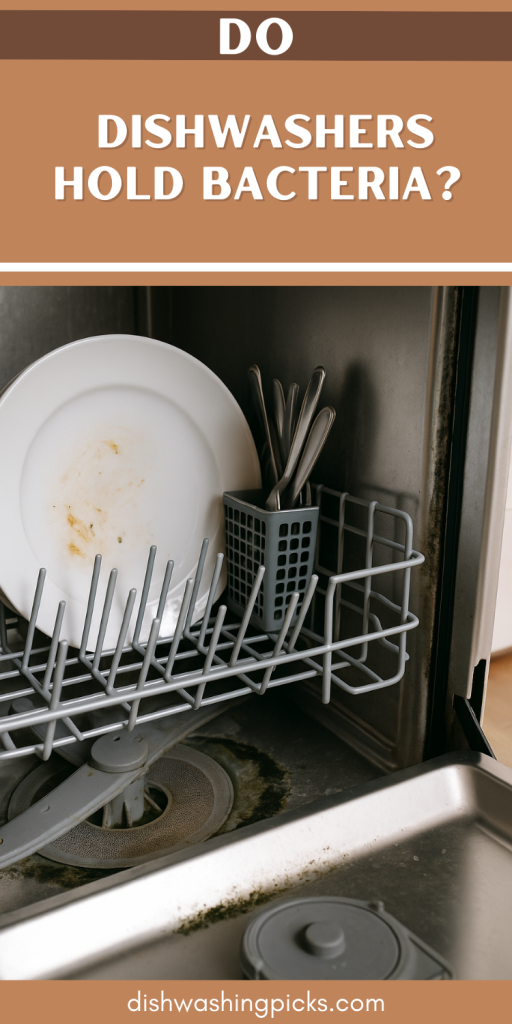
Let’s set the scene.
You open the dishwasher, fresh after a cycle, expecting that lemony clean scent and sparkling dishes… but instead, there’s a weird smell. Not awful, not great. Just… suspicious.
And suddenly, the thought creeps in:
“Wait. Are there bacteria in here? Like… is my dishwasher dirty?”
It feels wrong, doesn’t it? The thing that cleans your dishes being dirty itself? Like finding out your toothbrush is chilling in a sewer between uses. Ew.
So, let’s answer the question we’re all secretly wondering but maybe too scared to ask out loud.
Spoiler Alert: Yeah, Dishwashers Can Harbor Bacteria
(I know, not what we wanted to hear.)
Yep, it’s true. Dishwashers aren’t immune to germs. In fact, some of them are basically five-star hotels for bacteria—warm, moist, and full of leftover food scraps. Kinda gross when you think about it, right?
But don’t panic. The good news is, most of the bacteria that do show up in there? They’re not necessarily dangerous. More annoying than anything. Like that one neighbor who keeps parking too close to your driveway. You don’t love it, but you can deal.
Still, let’s get into the “why” behind it. Because once you know what’s causing the funk, it’s way easier to handle.
So… How Do Bacteria Even Get In There?
Great question. Dishwashers run hot water, detergent, and dry cycles. Seems like bacteria would have no shot, right?
Here’s the catch: it’s not during the wash cycle that bacteria thrive—it’s the in-between times.
You know, when the door stays closed for hours with a bit of leftover moisture and some food bits that didn’t quite rinse away. It’s like the perfect little spa for microbial freeloaders.
Add in filters that don’t get cleaned regularly and seals that trap gunk, and boom—you’ve got a bacterial Airbnb going on.
Oh, and fun fact (read: horrifying detail): studies have found fungi and bacteria like Exophiala and Pseudomonas chillin’ inside dishwashers. If that sounds like a Harry Potter spell, just know it’s not magical—it’s just a sign your dishwasher needs some TLC.
How Do You Know If Your Dishwasher’s Playing Host to Germs?
It’s not always obvious. But there are some red flags to look out for:
- Weird smells – Like musty socks or a damp basement. That’s bacteria waving hello.
- Visible gunk or slime – Especially around the door seal or filter.
- Cloudy dishes or spots – Sometimes it’s hard water. Sometimes it’s dishwasher funk.
- Mold – This one’s a big ol’ nope. If you see mold? That’s a cleaning emergency.
Still unsure? Just imagine this: Would you eat off a plate that sat in a warm, wet box full of rotting food for 24 hours? No? Then yeah, it’s probably time to give your machine a quick clean.
Okay, So How Do You Clean It Without Going Full CSI?
Good news—you don’t need a hazmat suit. Just a few regular habits can keep your dishwasher in the “clean and trustworthy” zone:
- Clean the filter.
Yes, your dishwasher has one. It’s usually at the bottom and probably filled with stuff you don’t want to see. Gloves recommended. - Run a cleaning cycle.
You can buy dishwasher cleaner, or go DIY with vinegar + baking soda. Just don’t do both at the same time (they cancel each other out). - Wipe the door seal.
That rubber gasket around the door? Gunk central. Give it a wipe with a cloth and a bit of soapy water once in a while. - Leave the door slightly open.
After a cycle, crack it open to let the moisture escape. Bacteria love dampness. Don’t give them the satisfaction. - Scrape (don’t rinse) your dishes.
You don’t need to pre-wash, but big food chunks? Yeah, toss those in the trash instead of letting them become dishwasher stew.
Should You Be Worried?
Not really.
Dishwashers can harbor bacteria, sure—but with a little routine care, yours won’t. It’s like your gym bag. Leave it wet and closed in a hot car? Ew. But toss in a dryer sheet, air it out, and clean it now and then? All good.
So no, your dishwasher isn’t secretly trying to poison you. But it is a little high-maintenance. Show it some love every now and then, and it’ll keep your dishes (and your peace of mind) squeaky clean.
Bottom Line?
Your dishwasher’s job is to clean. Just make sure it’s not silently screaming for a little cleaning itself.
Because nobody wants to wash their dishes twice, especially when the second time involves bleach and regret.
Need help with another weird home mystery? Let’s dig into it together. You bring the question—I’ll bring the sarcasm and answers. Deal?
